The Speed of Sound
Walla Walla Music Organization offers audio engineering for all
March 5, 2020
WALLA WALLA—The speed of sound for Walla Walla music Organization (WWMO) is about three years, give or take a few months. Three years is about how long it took founder Rodney Outlaw to build a substantial course load of audio production education and to find the students passionate about learning to populate it.
Outlaw teaches students how to produce, record and manage music and sound. Audio engineering is a broad term for managing signal flow through channels. There is a science to it.
The goal behind teaching students the math and science of the audio world is so that they can take those skills into any facet they choose while offering opportunities for creative expression. It doesn’t matter what type of music students like, or if they’re into music at all.
Audio is consumed by everyone all day long albeit through verbal conversation, video chat, social media stories, or podcasts. More and more colleges are adding degree programs for audio engineering such as Spokane CC, Shoreline CC, and Portland State University.
Outlaw, a graduate of the Conservatory of Recording Arts and Science, got into making beats in middle school.
Outlaw has created a program that began in service of the youth, but through time has developed into a community of 14 to 40-year olds. The original kids from the program are now adults equipped with the invaluable knowledge that would make one indispensable at a venue, or with a touring musician. Students walk away with marketable skills in an industry thought to be impossible to break into if you weren’t “connected”.
While WWMO has been active just over three years, the idea has always been on Outlaw’s mind. Born and raised in North Carolina, Outlaw graduated, left and never looked back.
“I followed the music,” Outlaw continues, “to Maryland, Washington, D.C., Atlanta, San Diego, Seattle. Wherever the music took me, I was there.”
Outlaw’s first distribution deal, a major breakthrough in the industry, was through Houston Records. Eventually he ended up with Universal Records.
There’s always something new to learn in the industry, and there’s always more to do; traveling, performing, promoting, all the while creating new content. “What kept me grounded was I always worked with kids. Growing up in the south with a big family, it’s always the older kids’ responsibility to take care of the younger cousins,” recalls Outlaw, “I always had a knack for it. I kept that piece to remind me of where I came from, and who I was, as a person, not as an artist.”
Outlaw spent years doing music production for television, film and some independent artists.
“My wife is from Walla Walla. When we decided to raise our family here I thought it was the perfect time to put [WWMO] on the front burner.”
Upon arrival in 2015, Outlaw applied for a para educator position at Lincoln High School. “It was the best way to get to know the community to determine if my program was something they would even want,” says Outlaw, “I needed to work with the students. When I did, I started seeing very talented kids. These kids had chops to be their age!”
Though they had written and even mastered performing their own music, Outlaw’s students said they had no recording skills. So he designed a low-to-no budget after school program for interested parties. “I started with a songwriting class focused around structure and song arrangements to keep them engaged.”
Parents often support their kids in sports with the hope that scholarships or a career will follow, but there isn’t as much support readily available for someone who wants to be a rock star. But there are more jobs in music than just rock star, including building a stadium twice as loud as any other like the Seahawks. Someone had to truly master the acoustics of that design to make it work. You can be a rock star and also make a living from these same tools and skill sets.
“Eventually the principal noticed that 15 students were willingly attending classes over the summer so funds were found in the budget for two digital audio workstations.”
Outlaw’s lessons began with basic signal flow, then introduced students to industry standard audio interfaces like Logic Pro, Pro Tools, etc. At first it was about getting them comfortable with the technology. Getting used to hearing your recorded voice versus what you sound like in your head is a challenge in and of itself.
As students’ skills grew, he then taught them about more advanced concepts, such as quantizing, and automation.
Throughout that year more students piled in, some showing up from Wa-Hi. Since the program only had two workstations, learning was limited. Students were split into groups of three or four, some practicing what they’re learning while the other half would be at the whiteboard doing theory exercises and practical work.
One student was an aspiring animator and needed to learn audio engineering fundamentals to create scores to accompany his animations.
“I thought their work was amazing,” says Outlaw, “but the program also needed to be community based. It shouldn’t just be for school kids. There are a lot of people who want access to this information.”
The Walla Walla Public Library was equipped with an unused digital media lab. Outlaw met with the director and toured the facility to find 10 computers with software installed and MIDI controllers. Since Outlaw already had interested students, he was not swayed when he was informed that a previous program didn’t take off. “The director said, you think you’re going to get high school kids in here on a Saturday for three hours? I don’t think it’s going to happen, but if you can make it work, we would let you use the space.” Outlaw let the students decide. “I can’t speak for them. It has to be an environment that they’ll come to and be comfortable in.” They loved the room, and depending on who showed up that day, each student was able to have their own setup. “We then transitioned to the library to what became known as Open Labs,” Outlaw recalls.
What began as a few high school students experimenting with songwriting expanded into the Digital Music Production CrewSpace Class held at the Walla Walla Public Library.
Open Labs hosted a concert at the end of the summer of 2017. The students had learned enough to produce, record, mix, their own music and write their own lyrics to songs. “We put on a concert and about 230 people showed up inside the library to watch these kids perform. After that point we were approached by Walla Walla Community College.”
Outlaw now teaches Music Production I, II, and III, Mixing I, II and III, Music Business and, just added, a Live Sound class at WWCC.
Audio engineering equipment is a means to an end. This technology is to music what grammar is to writing. Learning the fundamentals of sentence structure only better equips an artist to express themselves. Every button on a sound board has a perfect occasion for its use. Matching the former with the latter is the challenge audio engineers face.
WWMO has functioned as a nonprofit since 2017, with Blue Mountain Action Council acting as their fiscal agent.
Recently, WWMO and WWCC have partnered with Gesa Powerhouse Theatre to create opportunities for students to work directly with local musicians for the Live Sound class that started at the end of January.
Outlaw is teaching a skill set that students can use whether it’s in our community or wherever the music might take them. His work demonstrates that there are attainable and fulfilling jobs in the music industry. “The City [of Walla Walla] contracts with us. My students record the Big Idea Talks that the City brings in. [Students] run sound and record it so it can be uploaded to their website.” Though the talks tend to require only one or two microphones, the students get comfortable at a console, loading in equipment, laying cable, etc.
The group is fundraising to complete their resources. They could use a few more workstations and scholarship funds for students who can’t afford the $110 fee. When a student can’t afford to pay, “I come out of pocket for them just because they belong in the class,” says Outlaw. “There’s got to be a better way for this information to be available for people who want to learn without them having to pay a gazillion dollars to have access to it.”
“Every penny we make goes back into the program,” says Outlaw, “I don’t get paid from it yet, but for me it’s not necessarily about a paycheck, it’s about building something that’s going to be sustainable within its own right, and everything else will take care of itself in due time.”
Outlaw is currently working on a website and a marketing campaign with the help of interns from Walla Walla College. The best way to make contact is through the WWMO Facebook page. For information on the audio engineering classes available at WWCC this fall, reach out to Danielle at (509) 527-4331.






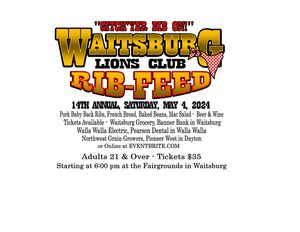
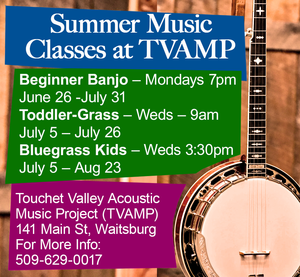
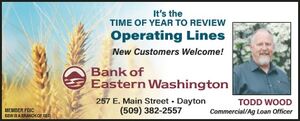
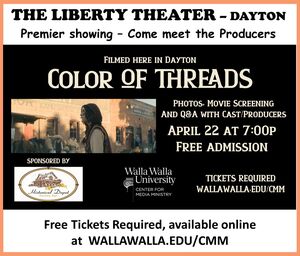


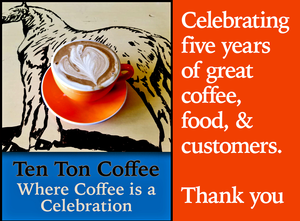
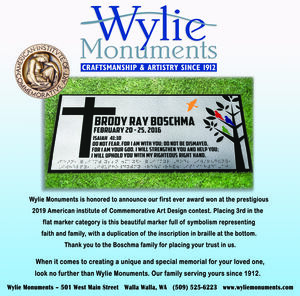


Reader Comments(0)